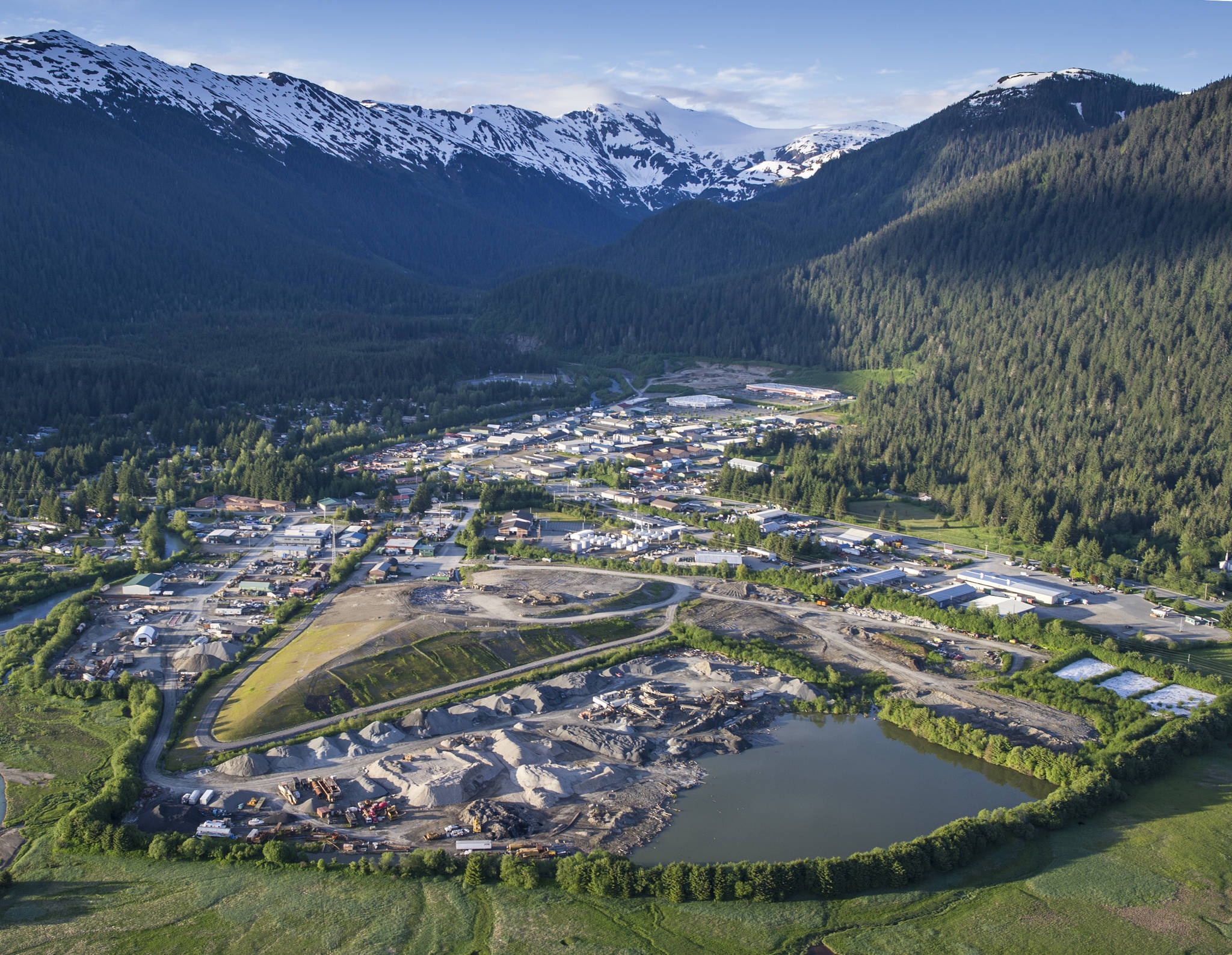City officials are aware of a smelly situation in a Juneau neighborhood but say they have limited options for directly addressing the problem.
At Monday night’s Committee of the Whole meeting, the City and Borough of Juneau discussed recent resident complaints about the Lemon Creek area’s landfill-fueled odors.
The committee agreed to consider further study of the issue and to advocate for affected residents. Still, it acknowledged that the city’s hands are ultimately tied because private companies control the waste management process.
Rorie Watt, CBJ city manager, explained that Alaska Waste provides trash pickup and that Waste Management, a private company, owns and operates the Capitol Disposal Landfill near Lemon Creek. He said that Alaska Waste has a contract with Waste Management to dispose of collected trash at the site.
As distasteful as a visible landfill may be, it’s less costly, and CBJ does not control it, Watt told the committee.
“If you don’t control the waste stream, you aren’t making the decisions,” Watt said.
Limited options
Due to state licensing requirements, CBJ can collect recycling, but is unable to collect garbage.
Watt explained that an effort in 2007 to acquire the license held by Alaska Waste in exchange for a contract to pick up trash throughout the city was unsuccessful. Part of the reason that effort failed was public outcry over a provision that included mandatory garbage service for all homes and businesses in town.
Advocacy
Assembly member Carole Triem first suggested the assembly advocate for residents directly with Waste Management. “The burden is really being borne by people who live in Lemon Creek,” she said.
Assembly member Maria Gladziszewski agreed.
“The city has no real control over the waste stream,” Gladziszewski said. “We have people understandably upset about the smell, and there are very few levers we can pull. We should make our voice known on behalf of the community,” she said.
Watt agreed that advocacy is a route open to the city.
“Our duty is to look out for people who suffer from landfill gas. We can communicate with the landfill owner and the regulatory bodies. I appreciate how hard they are trying, and yet they are not always meeting their obligations,” Watt said.
CBJ considers new restrictions on fireworks
Juneau’s trash
According to a presentation by Lori Sowa, a project manager for CBJ, Juneau’s waste stream is a long-standing area of concern, with various studies dating back to at least 1993.
She said that Juneau’s waste falls into a handful of categories, a portion of which are recycled. Waste headed to the landfill generally includes household garbage, construction debris, food waste and biosolids from wastewater treatment.
Recyclable materials, household hazardous waste and junk vehicles are managed via other means.
Sowa said the Environmental Protection Agency estimates that about 25% of what goes into the landfill is compostable. Much of the city’s food waste that goes into garbage disposals ends up in the dump as part of biosolids.
Assembly member Wade Bryson said that his research showed that about 30% of the Capitol Landfill waste consists of construction debris.
Could rare Earth minerals be Alaska’s edge?
“Odors come from lots of sources,” Watt said.
He added that sheetrock is often a significant source of landfill odor.
Assembly member Michelle Bonnet Hale said that the Public Works and Facilities Committee would be looking at waste source reduction strategies from households and businesses, specifically food waste. She added that many people don’t know that garbage disposal waste ultimately ends up in landfills.
•Contact reporter Dana Zigmund at dana.zigmund@juneauempire.com or 907-308-4891.

